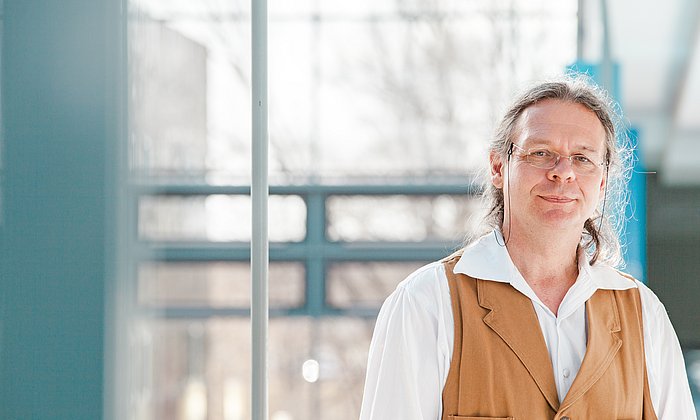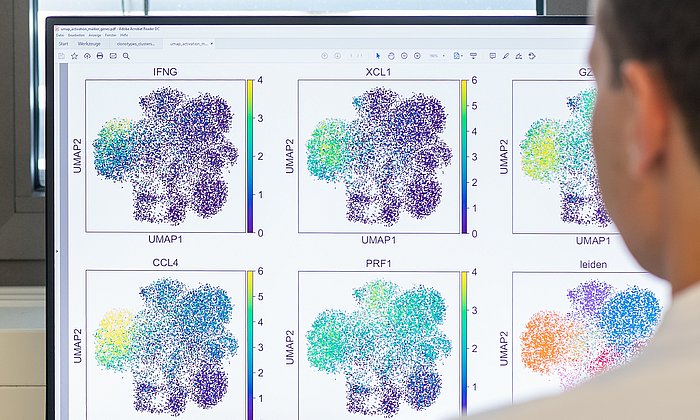Interview with Prof. Clarissa Prazeres da Costa and Dr. Nina Wantia on their Covid-19 Lecture
"Our hospital prepared very early"

What were the main measures hospitals relied on in the Corona pandemic to protect patients and staff?
Prof. Prazeres da Costa: The main pillars of the strategy were spatial and organizational measures, and the use of personal protective equipment for hospital staff. This was supplemented by a comprehensive testing strategy: Sars-CoV2 infected patients had to be identified as quickly as possible to prevent infection. We also implemented a local vaccination strategy with the aim of quickly protecting particularly vulnerable groups among our employees.
How did you meet this challenge at Klinikum rechts der Isar in particular?
Prof. Prazeres da Costa: Our hospital prepared very early and put together an interdisciplinary team of experts. In the first few months of the crisis, these experts met every day, because at that time it was completely unclear what we were facing. It had to be possible to react on a daily basis. It was necessary to discuss and implement the new scientific publications that appeared every day, as well as the recommendations of the Robert Koch Institute and the health authorities. In our presentation, we report on some highlights from the daily routine, especially from the perspective of prevention and hospital hygiene. But we also talk about the new networks of university medicine (NUM) that have emerged in the meantime and about research projects in this field.
Dr. Wantia: Of course, there have always been difficulties in implementing measures. Communicating the state of knowledge and the measures derived from it, as well as training all affected employees, were major challenges. Especially at the beginning of the pandemic, this was made even more difficult by supply bottlenecks, for example of protective equipment and ventilation supplies. In short, the fact that all employees at the hospital always knew what to do in which situation - that was a major joint achievement.
Sometimes, looking back at the past helps to better master a current situation. Are such comparisons also worthwhile with regard to pandemic pathogens?
Prof. Prazeres da Costa: This is an enormously relevant and important question. In the lecture, we therefore also take a historical look at other pandemics, such as those caused by influenza: the Spanish flu in 1918/19 and the swine flu in 2009. We will also assess the relevance of the SARS CoV-1 and MERS outbreaks. For example, we will discuss the intriguing question of why there was not a pandemic with the very closely related pathogen SARS-CoV-1 in 2003. We will talk about what role the so-called reproductive number, virus shedding and mobility played in this. Furthermore, about what measures were taken in different countries, which of them were successful, and which were not. Our aim is to show how important it is to work through the current pandemic as well - especially since it is highly likely that this will not be the last.
COVID-19 Lectures: Infektionsprävention - lokale und nationale Strategien (in German language)
- Prof. Clarissa Prazeres da Costa is co-founder and co-director of the Center for Global Health (CGH) at TUM. She is head of the research group for "Infection and Immunity in Global Health" and the Department of Diagnostic Parasitology at the Institute of Medical Microbiology, Immunology and Hygiene and since March 2020, part of the Covid 19 expert team at the Klinikum rechts der Isar.
- Dr. Nina Wantia Wantia heads the Department of Diagnostics at the Institute of Medical Microbiology, Immunology and Hygiene at TUM. She is a hospital hygienist at the TUM's German Heart Center and is also part of the Covid 19 expert team at the univerisity hospital Klinikum rechts der Isar.
- This is the last part of the Covid-19 Lectures for the time being. All recordings of the series can be found on the TUM YouTube channel.
Technical University of Munich
Corporate Communications Center
- Corporate Communications Center
- a.schmidt@tum.de
- presse@tum.de
- Teamwebsite


